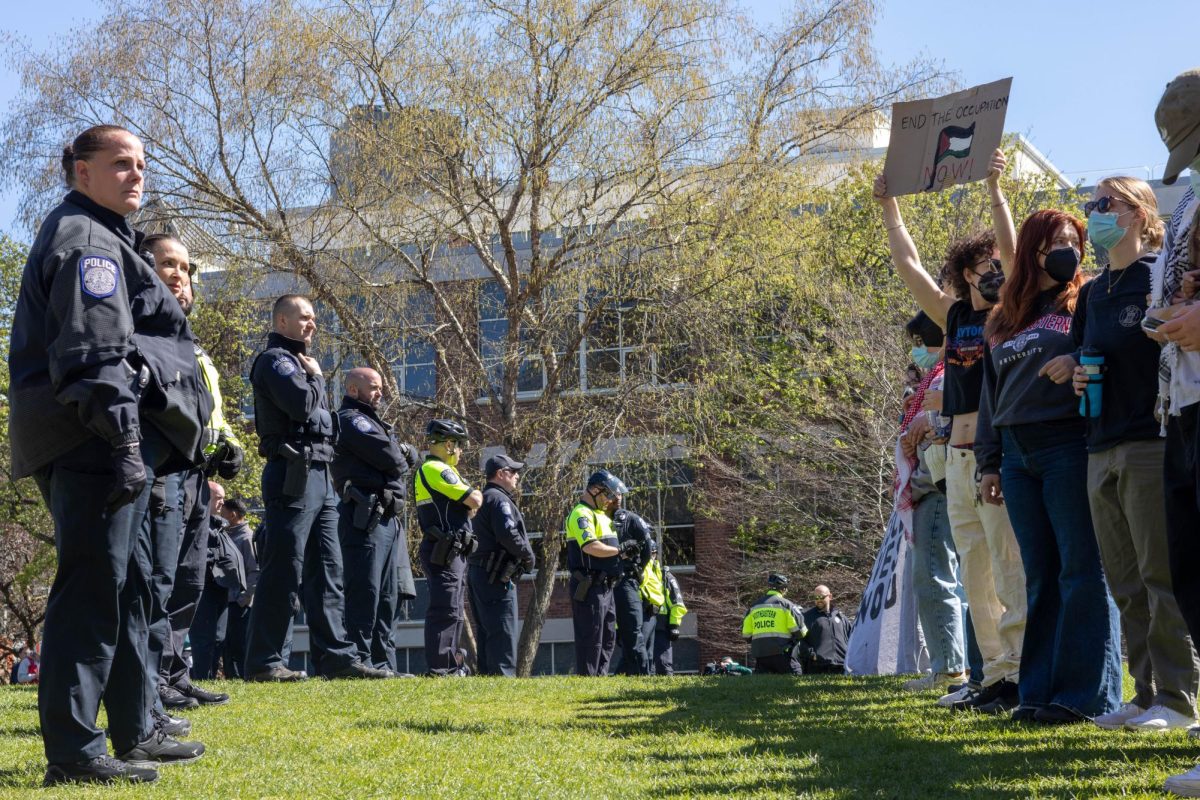Column: Fenway opener a clear exhibit of MLB’s biggest problem
April 6, 2017
All was right with the baseball world Monday afternoon.
The unblemished beauty of MLB’s Opening Day was on full display, and it was as glorious as ever. Every team sat in first place for at least a few hours, all of them filled with the hope and optimism that comes with a clean slate—162 games left in the tank. Nobody was in a slump yet. No errors were on the ledger yet. Just a blank page, and every opportunity to write a story with a happy ending.
The 2 p.m. meeting between the Red Sox and Pirates was no exception, but it also served as a reminder of one of baseball’s biggest problems: The competitive disparity created by a lack of any kind of salary cap.
Masked by the joyous, carnival atmosphere at Fenway on Monday was the fact that the two teams present have radically different paths to success and resources available to them. The disparity was in full evidence on Opening Day; you just had to look closely
The Red Sox, located in the huge media market of New England, have significantly more funds available to them than the Pirates, who call one of the smallest MLB media markets home. MLB doesn’t cap the amount of money a team can spend on players, so teams like the Sox can whip out the checkbook and land top free agents, while teams such as Pittsburgh are left to cobble together a team with what’s left after the big spenders have had their say.
Monday’s opener was a fine ballgame, but it was a story of the haves against the have-nots.
The Red Sox starting pitcher, Rick Porcello, signed a four-year deal in 2016, good for $20 million annually. Porcello was one of Boston’s key players Monday, throwing seven innings with three earned runs.
The Pirates sent out Gerrit Cole, whose contract is good for just $3.7 million this year. The rest of the Pirates’ starting rotation consists of Ivan Nova earning around $10 million yearly, and Chad Kuhl, Jameson Taillon and Tyler Glasnow, who each earn under $1 million.
The Red Sox, meanwhile, will be paying David Price $30 million for the next six years and traded this winter for Chris Sale and his $12 million annual rate.
Do you think the Pirates want to field a rotation that includes an unproven and unheralded right-hander in Kuhl, a prospect that by all accounts does not seem ready for the major leagues in Glasnow and a lone veteran in Nova? I highly doubt it. But baseball’s economic system leaves them no choice. All the while, the Sox can throw cash around at will and pick up aces like Price, Sale and Porcello.
The offensive side of things is where this gets really egregious. Boston will have the financial capability to re-sign some or all of their current swarm of young hitters, but small market teams don’t have that luxury.
Pirates fans have an affinity for their outfielders. They always have: Greats like Willie Stargell, Roberto Clemente, Dave Parker and Barry Bonds primed them for it. These days, when the Pirates’ starting lineup is announced before a game at PNC Park, there’s an added reverence, a kind of genuine thankfulness from those in attendance reserved for Andrew McCutchen.
The man saved baseball in Pittsburgh. The Pirates were mired in a string of losing seasons approaching two decades and McCutchen rose from the ground (well, Florida, actually) and put a team, and a city, on his shoulders. No ballplayer has been as beloved in Pittsburgh in quite some time.
And his days as a Pirate are nearing their end, thanks to MLB’s financial environment. A player who is beloved by all, respected by all, and who is responsible for the resurrection of a franchise will bid farewell to the city he saved, all because some deep-pocketed team will almost surely out-bid the Pirates for his services.
If and when it happens, it will be a tragedy. No matter what team you pull for, that shouldn’t be something that you want to see. One of the great occurrences in sports is when a hero becomes bonded with a city, almost to the point of being pseudonymous. Pittsburgh and McCutchen will likely be robbed of that.
So I sat there at Fenway Park, enjoying a perfectly pleasant afternoon of baseball. I wondered why anyone stands for this. Why was I watching a game involving one team that could either buy or exorbitantly re-sign their players and one team that had to home-grow almost all of them, with little to no hope of extending their contracts? How is this disparity allowed to exist in America’s pastime?
It is allowed because, just as is often true in life outside of sports, the rich get richer in baseball. The ones with the fattest wallets — Boston, New York, Chicago, Los Angeles — call the shots. And this situation benefits them.
What can be done, then? Nothing, in the short term, unless all of those teams’ owners feel like forfeiting a huge competitive advantage in the name of fair play. Even then, the players’ union would likely object. For now, games aren’t decided on the field, at least not entirely.
So when a new World Champion is crowned in October, it will mean just a tiny bit less to me, because it’s undeniable that not every team will have gotten a fair shake.

















